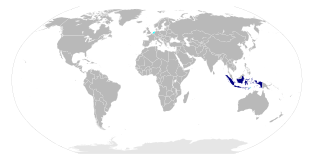
Elections in Indonesia have taken place since 1955 to elect a legislature. At a national level, Indonesian people did not elect a head of state – the president – until 2004. Since then, the president is elected for a five-year term, as are the 560-member People's Representative Council and the 128-seat Regional Representative Council.
The Indonesian Justice and Unity Party is a political party in Indonesia.
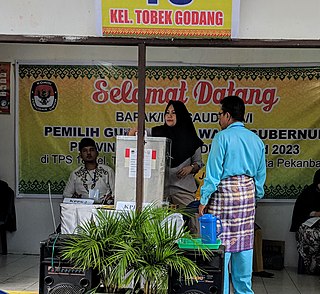
Local elections were held in Indonesia on 27 June 2018. Votes were held to elect 17 governors, 39 mayors and 115 regents across the country. The elections included gubernatorial elections for Indonesia's four most populous provinces: West Java, East Java, Central Java and North Sumatra.

The 2018 West Java gubernatorial election took place on 27 June 2018 as part of the simultaneous local elections. It was held to elect the governor of West Java alongside with their deputy, whilst members of the provincial council will be re-elected in 2019.
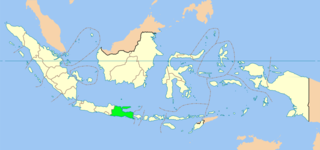
The 2018 East Java gubernatorial election took place on 27 June 2018 as part of the simultaneous local elections. It was held to elect the governor of East Java alongside with their deputy, whilst members of the provincial council will be re-elected in 2019.
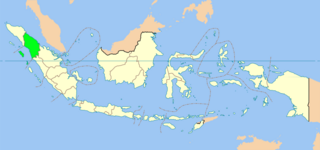
The 2018 North Sumatra gubernatorial election took place on 27 June 2018 as part of the simultaneous local elections. It was held to elect the governor of North Sumatra alongside with their deputy, whilst members of the provincial council will be re-elected in 2019.

The Garuda Party is a political party in Indonesia that will contest the 2019 general election. The party been linked to the family of former president Suharto. Officials have denied the party is linked to the Suharto family or to former general Prabowo Subianto's Gerindra Party.

The 2018 South Sulawesi Gubernatorial Election took place on 27 June 2018 as part of the simultaneous local elections. It was held to elect the governor of South Sulawesi alongside with their deputy, whilst members of the provincial council will be re-elected in 2019.
The 2018 Bandung mayoral election took place on 27 June 2018 as part of the simultaneous local elections. It was held to elect the mayor of Bandung alongside with their deputy.

The 2018 Makassar mayoral election took place on 27 June 2018 as part of the simultaneous local elections. It was held to elect the mayor of Makassar and the deputy mayor.

The 2018 Lampung gubernatorial election took place on 27 June 2018 as part of the simultaneous local elections in Indonesia. It was held to elect the governor of Lampung alongside with their deputy, whilst members of the provincial council will be re-elected in 2019.
The 2018 Bali gubernatorial election took place on 27 June 2018 as part of the simultaneous local elections. It was held to elect the governor of Bali alongside with their deputy, whilst members of the provincial council will be re-elected in 2019.
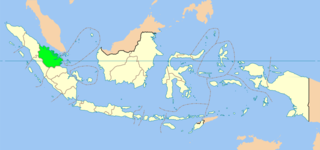
The 2018 Riau gubernatorial election took place on 27 June 2018 as part of the simultaneous local elections. It was held to elect the governor of Riau alongside with their deputy, whilst members of the provincial council will be re-elected in 2019.
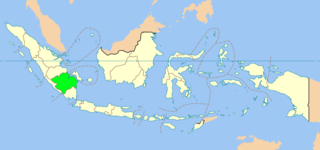
The 2018 South Sumatra gubernatorial election took place on 27 June 2018 as part of the simultaneous local elections. It was held to elect the governor of South Sumatra alongside with their deputy, whilst members of the provincial council will be re-elected in 2019.

The 2018 West Kalimantan gubernatorial election took place on 27 June 2018 as part of the simultaneous local elections. It was held to elect the governor of West Kalimantan alongside with their deputy, whilst members of the provincial council will be re-elected in 2019.

The West Java Regional People's Representative Council is the unicameral legislature of the Indonesian province of West Java.

The 2018 East Kalimantan gubernatorial election took place on 27 June 2018 as part of the simultaneous local elections. It was held to elect the governor of East Kalimantan alongside with their deputy, whilst members of the provincial council will be re-elected in 2019.

The 2018 East Nusa Tenggara gubernatorial election took place on 27 June 2018 as part of the simultaneous local elections. It was held to elect the governor of East Nusa Tenggara alongside with their deputy, whilst members of the provincial council will be re-elected in 2019.
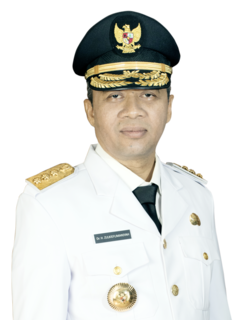
The 2018 West Nusa Tenggara gubernatorial election took place on 27 June 2018 as part of the simultaneous local elections. It was held to elect the governor of West Nusa Tenggara alongside with their deputy, whilst members of the provincial council will be re-elected in 2019.

The 2018 Southeast Sulawesi gubernatorial election took place on 27 June 2018 as part of the simultaneous local elections. It was held to elect the governor of Southeast Sulawesi alongside with their deputy, whilst members of the provincial council will be re-elected in 2019.

